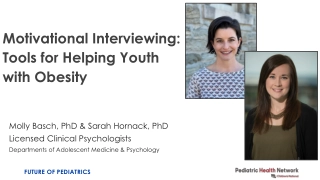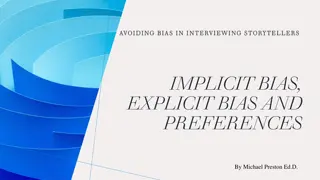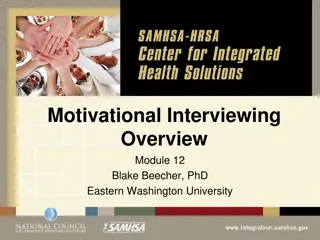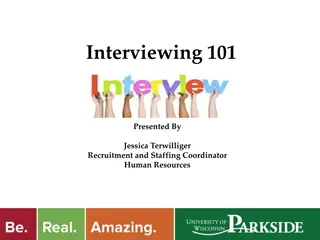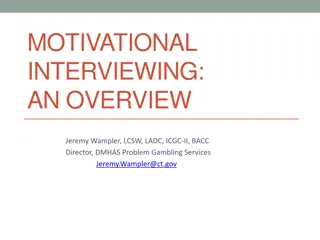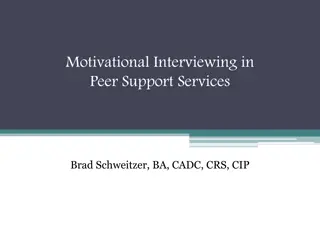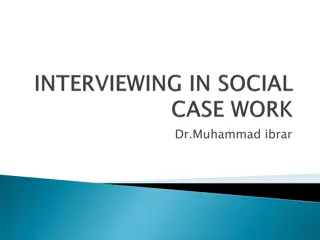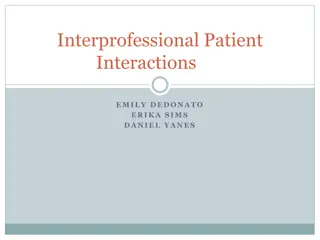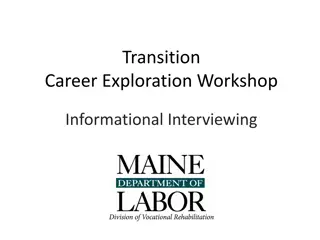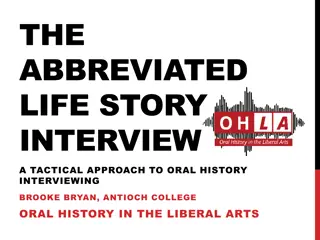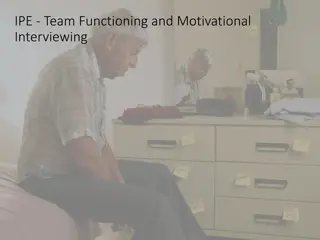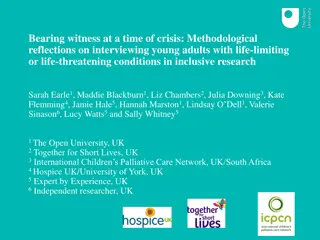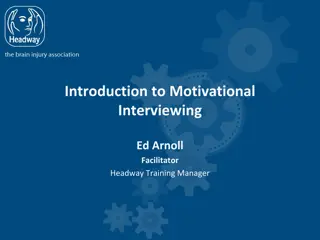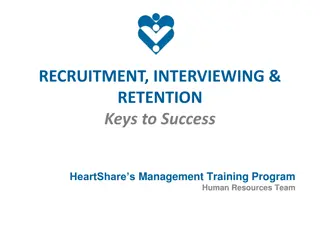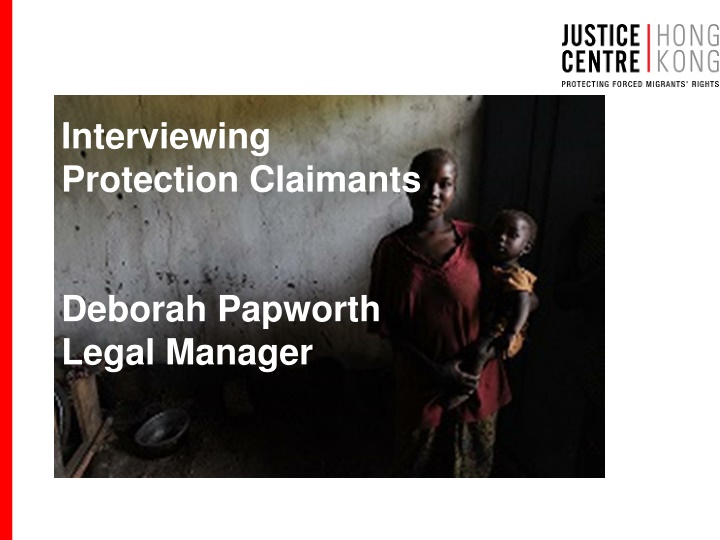
Challenges and Building Trust in Interviewing Protection Claimants
Learn about the challenges faced by vulnerable claimants when seeking protection as a refugee, including cultural and psychological barriers. Discover strategies to build trust and conduct effective interviews to aid claimants in their asylum process.
Download Presentation

Please find below an Image/Link to download the presentation.
The content on the website is provided AS IS for your information and personal use only. It may not be sold, licensed, or shared on other websites without obtaining consent from the author. If you encounter any issues during the download, it is possible that the publisher has removed the file from their server.
You are allowed to download the files provided on this website for personal or commercial use, subject to the condition that they are used lawfully. All files are the property of their respective owners.
The content on the website is provided AS IS for your information and personal use only. It may not be sold, licensed, or shared on other websites without obtaining consent from the author.
E N D
Presentation Transcript
Interviewing Protection Claimants Deborah Papworth Legal Manager
Protection Claimants An applicant for refugee status is normally in a particularly vulnerable situation. He finds himself in an alien environment and may experience serious difficulties, technical and psychological, in submitting his case to the authorities of a foreign country, often in a language not his own. (UNHCR Handbook and Guidelines on Procedures and Criteria for Determining Refugee Status)
Introduction The Challenges o Social, medical, psychological concerns o Vulnerable claimants o Concerns outside of the scope of the testimony o An intimidating environment o Language o Cultural differences
Barriers to Trust Mistrust of law and lawyers Manner Cultural differences Differences in education, socio-economic level, gender, religion, race, etc. Personality preferences Psychological/medical problems
Interview Preparation Reviewing the factual summary and familiarising yourself with the COI Why prepare? o Build trust and confidence o Know which are the relevant questions to askl Crucial to have a thorough understanding of the protection claim definitions Preliminary country of origin (COI) research
Building Trust Introduce yourself, and call the claimant by name (make sure you know how to pronounce it) Adopting a friendly manner: smile! Maintain an open, non-judgmental attitude Do not interrogate or use a threatening, harsh or accusatory tone
Interview Structure Casework Protocol guidance Who you are and what you can/cannot do The definitions of refugee, torture, CIDTP The procedures for protection claimants in HK Why you will be asking detailed questions Confidentiality Explain that the claimant should share all information in order for you to effectively assist them
Starting the Interview Establishing the Purpose To gather facts to determine if the claimant has a prima facie claim and/or is vulnerable Individualized assessment of claim in light of country of origin (COI) research Assess for social welfare needs (especially for vulnerable claimants)
Interview Questions Who is the asylum seeker? Where are they from? Why did they leave their country of origin? Why can t they return to their country of origin?
Sample Interview Questions http://www.justicecentre.org.hk/pro-bono-legal-partners/
Sample Interview Questions http://www.justicecentre.org.hk/pro-bono-legal-partners/
Effective Questioning Open-ended questions o What? Why? How? o Elicits more information Closed questions o Yes/No o Limited information (e.g., name, date) o Use them to follow-up Keep questions short and simple
Effective Questioning (contd.) Question types to avoid: Compound/multiple questions o Leads to confusion Multiple choice questions o Limits answer Leading questions o Prevents full disclosure; danger of inconsistency Judgmental questions
Effective Questioning (contd.) Obtain details; follow-up where incomplete, vague, or non- responsive Clarify inconsistencies Ask about events in relation to COI
Effective Questioning: Manner Engage in active listening Conversational approach Adapt yourself to the claimant- be empathetic
Ending the Interview Ask the claimant if they have anything else to tell you or any questions Advise the claimant of what will happen following the interview Thank the claimant and interpreter
Post interview Review the information you have to see if you have enough information to assess the claimant s case Conduct COI research Determine types of evidence that would help corroborate the claim Look for possible contradictions or gaps Determine follow-up questions
Vulnerable Claimants Vulnerable claimants: particular problems, risks, and needs that lead to special needs in the protection needs assessment process. Includes: Families; single women; pregnant women; unaccompanied minors; victims of torture/SGBV and persons suffering from trauma; claimants with psychological or medical issues; victims of human trafficking
Working with Vulnerable Claimants Be sensitive to and aware of the prevalence of trauma among protection claimants Be conscious of demeanour, verbal and non-verbal cues Be aware of how vulnerabilities may affect claimants ability to engage in the legal process Social Worker for referrals and assistance
Psychological, Medical, and Social Concerns Social concerns o Basic needs (food & shelter) Psychological concerns o Depression, Post-traumatic Stress Disorder (PTSD), other o Claimant may block out a traumatic event o Re-traumatization when recounting an event o Difficulty with memory recall REFER

